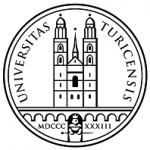项目介绍
About the course
For the first time, the Department of Economics is offering an integrated DPhil (PhD) in Economics. Students admitted to the joint MPhil + DPhil in Economics will first complete the two-year MPhil in Economics and then (subject to satisfactorily passing) automatically progress to the three- to four-year DPhil in Economics.
If you intend on studying the MPhil followed by the DPhil in Economics at Oxford, and if you have had substantial economics training and exceptional results in your prior studies, this is the right programme for you. Automatically progressing from MPhil to DPhil (subject to satisfactorily passing) reduces the uncertainty regarding the transition from MPhil to DPhil.
A DPhil at Oxford is the equivalent to a PhD at most other institutions. The structure of the MPhil + DPhil programme is similar to that of the integrated five-year PhD (sometimes called MRes-PhD) at leading economics graduate schools worldwide.
The vast majority of DPhil Economics students will study the combined MPhil + DPhil programme, entering at one of two points in time.
- Applying directly to the MPhil + DPhil: The department intends to admit around half of the DPhil in Economics cohort via the MPhil + DPhil programme.
- Applying to the MPhil + DPhil midway through the MPhil: You may begin with the standalone MPhil and then apply to transfer to the MPhil + DPhil during the second year of the MPhil. The department intends to admit around half of the DPhil cohort in this second way.
Students who have experience in graduate work in economics or related fields, or for example have completed the MSc in Economics for Development may wish to apply directly to the DPhil in Economics.
MPhil + DPhil students will join one or more of the department’s research groups, becoming part of a vibrant educational research community with an active set of doctoral student-led events, seminars and conferences. You will have opportunities to present your work at a variety of seminars and sessions in the department.
To enable the new joint programme to offer more rigour and exposure to the research frontier for future DPhil students, the department has made the MPhil programme more flexible.
MPhil
First year
The first year of the programme starts with a non-examined preparatory course in mathematical methods. The first two terms of the academic year focus on three compulsory courses in the central areas of microeconomics, macroeconomics and econometrics. The three courses are offered on two levels. Though most MPhil students will take the courses on the “core” level, MPhil + DPhil students will be expected to take one or more of the three courses at the “advanced” level in the first year and to take additional advanced courses in the second year. In the third term of the first year, you will choose from two entirely new courses in Empirical Research Methods and Advanced Maths. These courses will provide the specialised skills needed for academic or non-academic careers in our data-rich world and the technical tools for research in economics.
Second year
In the second year, you will take four option courses. The option courses build on the first-year training and provide deeper and broader training in your areas of interest. You can take advanced-level courses in macroeconomics, microeconomics, econometrics and empirical research methods covering recent developments in theory and analytical techniques. Other option courses are designed to develop knowledge and understanding of theory, empirical techniques and debates within specialist fields of economics. These include behavioural economics, development economics, economic history, financial economics, international trade, labour economics and public economics.
The second important component of the second year is the required thesis, supervised by a member of the department.
DPhil
In order to progress to the DPhil element of this course, you will be required to satisfactorily pass the MPhil element first.
You will then start the DPhil as Probationer Research Student (PRS). You will take additional courses from the MPhil menu to deepen and broaden your economic training, while starting to work on your first research project. The PRS status allows for a smooth transition from learning about economic research to producing new economic insights yourself.
Supervision
The allocation of graduate supervision for this course is the responsibility of the Department of Economics and it is not always possible to accommodate the preferences of incoming graduate students to work with a particular member of staff. Under exceptional circumstances a supervisor may be found outside the Department of Economics.
Assessment
MPhil
The three compulsory core courses in microeconomics, macroeconomics and econometrics are examined before the start of the third term of the first year of the MPhil.
The required thesis is an important component of the second year of the MPhil, and is supervised by a member of the department. The thesis is up to 20,000 words in length and is usually expected to contain some original research. It can be incorporated into a DPhil thesis.
You will receive numerical grades for your thesis and for each option course. Based on these grades and those for the first year courses, the examiners may award an overall pass grade, a pass with merit or a pass with distinction for the course. There is a prize for the best thesis and a prize for the best overall performance in written papers.
DPhil
Once you have satisfactorily passed and completed the MPhil component, you will be admitted to the DPhil as Probationer Research Student. You are first required to transfer to DPhil status. The Transfer of Status requires the completion of the Qualifying Examinations, necessary coursework, and an interview with two assessors appointed by the department, at which you will present an outline of your proposed thesis and a piece of written work relevant to the thesis. The transfer is normally expected to be completed by the end of the fourth term, and no later than six terms from admission to Probationer Research Student status.
Upon a successful transfer to DPhil status, you will be required to confirm your DPhil status no later than nine terms after admission to Probationer Research Student status. Candidates for Confirmation of Status are required to present a research paper at a workshop or seminar, present a detailed outline of the complete thesis and some complete draft chapters, and will be interviewed by an assessor.
The award of the DPhil degree is based on a thesis of not more than 100,000 words in length. It should constitute a significant and substantial piece of research, of a kind which might reasonably be expected of a diligent and competent student in three years of full-time study. The maximum time allowed for completion of the DPhil degree is four years.
Graduate destinations
The interests and strengths of the department’s doctoral students are many and diverse and this is reflected in the positions they take up after graduation: most take up tenure track or postdoc positions in academia; others find employment in government, international organisations, or the private sector. The international reputation of Oxford’s doctoral programme also means that its DPhil graduates can be found making a contribution in many different parts of the world.
The department recognises the importance of helping doctoral students find suitable employment and its placement efforts are directed by a senior member of the faculty. The department provides advice and help on all aspects of the job application process, including limited financial assistance to cover expenses.
Changes to this course and your supervision
The University will seek to deliver this course in accordance with the description set out in this course page. However, there may be situations in which it is desirable or necessary for the University to make changes in course provision, either before or after registration. The safety of students, staff and visitors is paramount and major changes to delivery or services may have to be made in circumstances of a pandemic (including Covid-19), epidemic or local health emergency. In addition, in certain circumstances, for example due to visa difficulties or because the health needs of students cannot be met, it may be necessary to make adjustments to course requirements for international study.
Where possible your academic supervisor will not change for the duration of your course. However, it may be necessary to assign a new academic supervisor during the course of study or before registration for reasons which might include illness, sabbatical leave, parental leave or change in employment.
For further information please see our page on changes to courses and the provisions of the student contract regarding changes to courses.
录取要求
-
a first-class or strong upper second-class undergraduate degree with honours in economics.
-
Applicants must demonstrate a strong quantitative preparation.
-
Candidates with a first degree in another related discipline should demonstrate how their academic background prepares them for graduate study in economics.
联系方式
电话: +44 1865 270000相关项目推荐
KD博士实时收录全球顶尖院校的博士项目,总有一个项目等着你!






